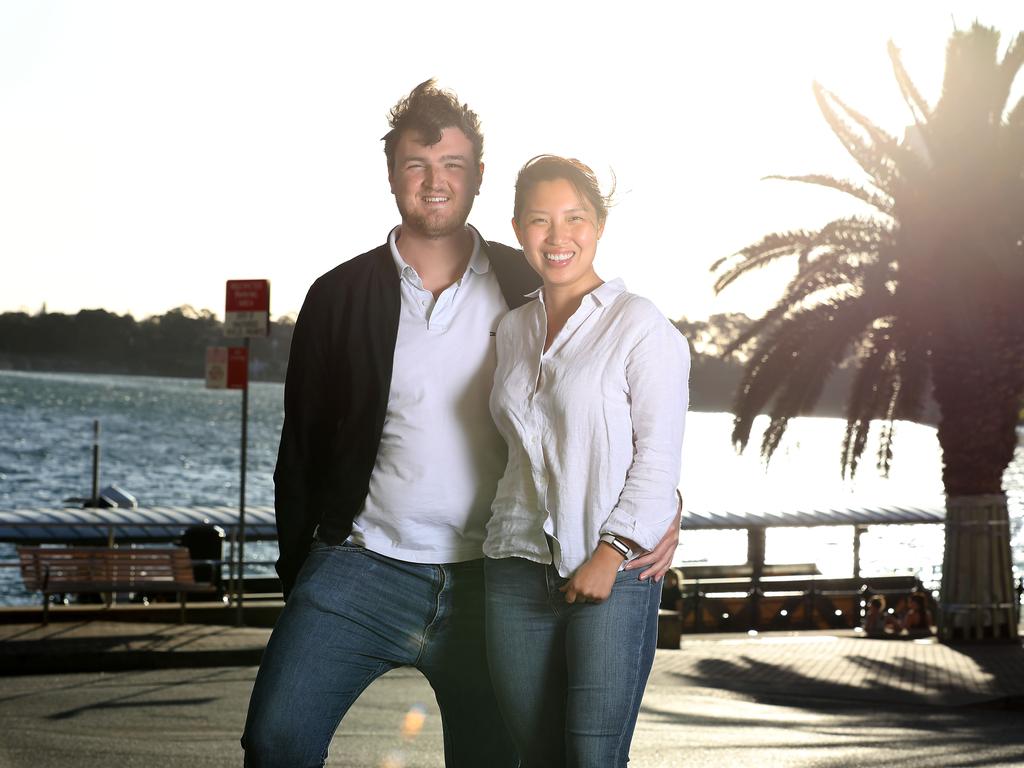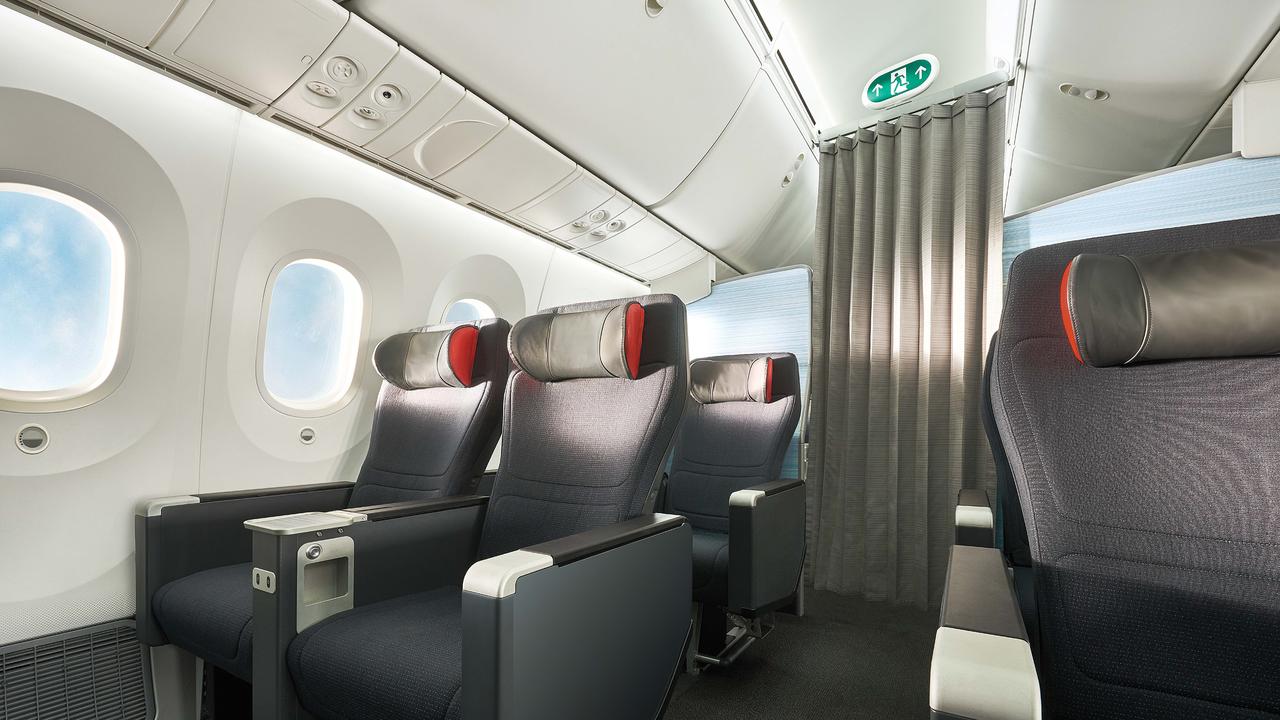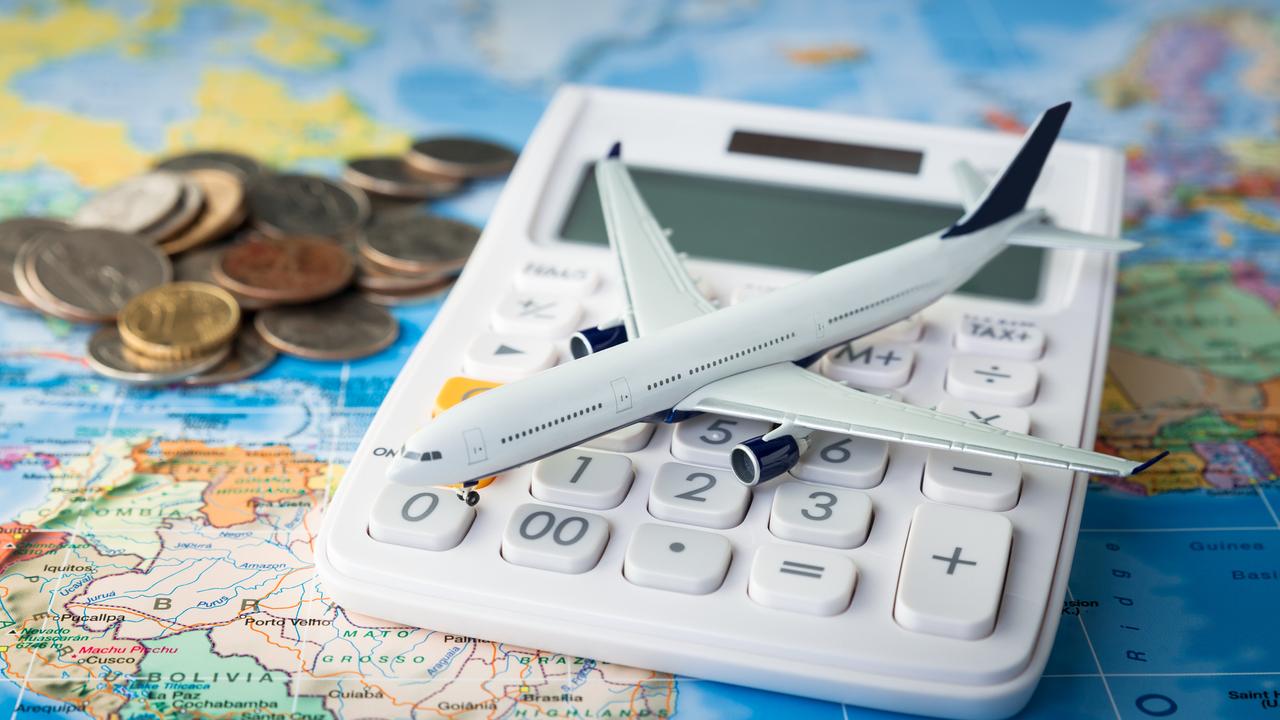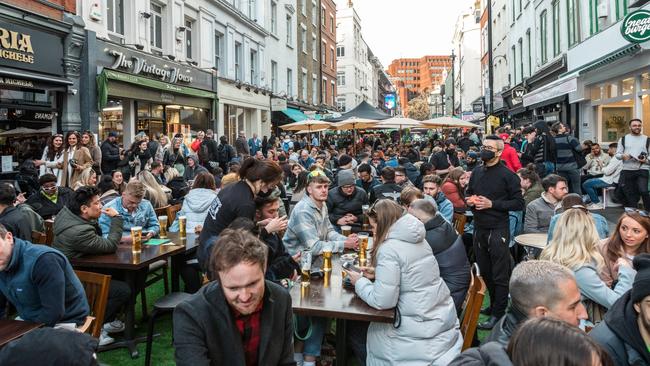
Ready to hop on an overseas flight when the national border is reopened next month? Then get ready for a culture shock.
Australians heading to London – the first across the globe overseas trip allowed in nearly two years – will be quite the experience.
Upon arrival outside Heathrow Airport there are no masks, no vaccination certificates, no checking QR codes, no breathless daily updates on Covid-19 cases, no obsessing about death tolls: London and the rest of the country in December will be a festival of Christmas markets and sparkling street lights, packed pubs with mulled wine and mince pies.
Australian travellers may not quite believe it, but you can also leave your phone at home, for there isn’t any tracking, routine phone app check-ins or data collection.
And Australian arrivals won’t even have to face any quarantine. That means none of the brutal two-week lockup inside a hotel, and there are no restrictions at home; people can mingle freely with the vaccinated and unvaccinated, inside and out at venues. The only requirement is a self-administered day two Covid test that you pop into the local post box.
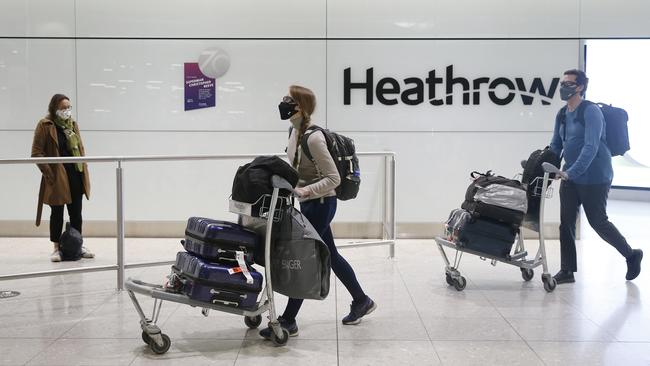
Welcome to a very different normalcy in England, which has more than 80 per cent vaccinated – and a far different way of life compared to the 80 per cent plans in some parts of Australia.
Since the beginning of October, the British government has done away with the traffic light system of arrival countries, instead keeping a handful of countries on the red list which require hotel quarantine (with smoking and exercise breaks). Australian arrivals have always been on the green list, requiring no barriers to entry at all.
The Brits will quickly present a very different viewpoint of what has gone on in Australia. Be ready to be regaled of their continued shock of how Australia’s state and federal governments have imprisoned Australians with cruel national and interstate border closures; how they’ve weaponised the police; how they’ve imposed heavy-handed fines and cowed a once larrikin and free-spirited nation.
Once here, Aussies may even revisit their own psychological response to the fearmongering and smugness that has riddled Australian discourse.
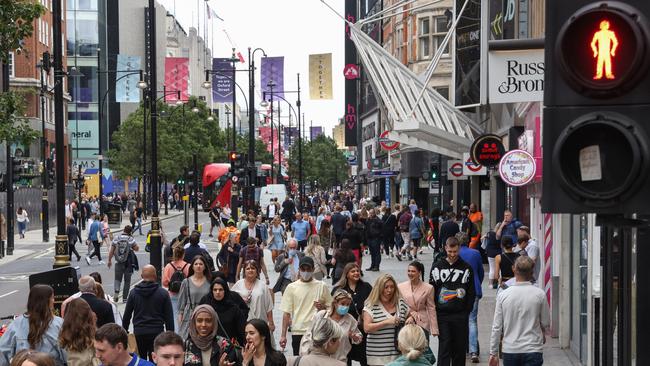
Remember too, stories about lockdown will get the short shrift here: the Brits had seven months of home schooling. But the smallest of thanks to the British and Turkish-born German scientists that developed the Covid vaccines, fast-tracking a return to daily activities and allowing families to reunite, will be very much welcomed.
One question mark is whether Australians arriving here will freak out that Britain admits to hospital each day about 700 Covid-sufferers.
Travellers will have to quickly adjust to packed trains, to football fans jumping and screaming inside packed stadiums, and even theatregoers dancing with glee. Britons can even sing hymns in church and swim in indoor pools.

Everyone gets on with their daily lives without government fines and draconian restrictions.
This is despite knowing the virus will still circulate, make people sick, and cause deaths, thankfully in diminishing numbers.
A snapshot of the virus in the retirement county of Norfolk, where the North Sea blows, foretells the quandary that Australians may soon face. Here the vaccination rate is one of the highest in the country, with 80.5 per cent having had two jabs – yet 531 locals still contracted Covid in the past seven days and 17 were admitted to the local Kings Lynn hospital. One died.
The British appear to have come to terms with the virus, knowing they can’t afford the extreme financial pain and collateral health damages of extended lockdowns.
Come to Britain and be imbued with some of that “keep calm and carry on” spirit.


